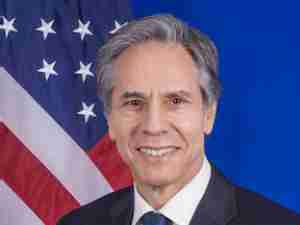Yi Xiaozhun, vice-minister of commerce, said the world economy was in a very unstable situation and many major economies were in difficulties.
"The best response from the international community is to make a breakthrough in this Doha round to protect the healthy situation of the world economy and to fight against protectionism," he said.
Yi said this was not easy and there was a risk that the negotiations, launched in late 2001 to open up world trade, would be delayed for years if they were not completed this year.
"It would be a very serious blow to the world economy," he said in an interview during the annual meeting of the World Economic Forum in Davos.
Yi called on all the World Trade Organization's (WTO) 151 members to do all they can to achieve a breakthrough in the next few months.
Yi said he was not optimistic a breakthrough could be made in the next few months, given the economic problems in some countries and the political situation, with many major countries facing elections.
He did not name them; but the United States elects a new president this year and a general election is due in India in 2009.
He said China was committed to pushing the negotiations forward.
As the world's second biggest exporter and third biggest importer, China has a powerful interest in a successful deal to anchor the global trading system and the rules that govern it.
Yi said China was the main target of protectionism and measures against unfair imports by developed countries, so he hoped the Doha round would result in fairer and more transparent rules for anti-dumping and other remedies.
Yi acknowledged that some developing countries have legitimate concerns about China's export machine.
Beijing is addressing these in several ways, including reducing export tax rebates on many products also exported by developing countries, such as textiles, helping such countries promote sales to China and encouraging Chinese entrepreneurs to invest in other developing countries, he said.
With nearly one fifth of Chinese exports going to the United States, China was bound to suffer if the US economy contracted, he said.
Yi expressed the hope that any slowdown would be short-lived if economies cooperated to tackle the problem, for instance through an agreement on the Doha round.
Yi said he did not have a precise forecast for Chinese exports. He said they would continue to grow, but smoothly rather than with a big jump, due to the measures China had taken such as export tax rebates.
Some of this export growth would be due to the investment that foreign multinationals have made in China in the past 10 or 20 years, he said. Such investment by foreign companies already accounts for more than half of China's exports, he noted. (Reuters)









